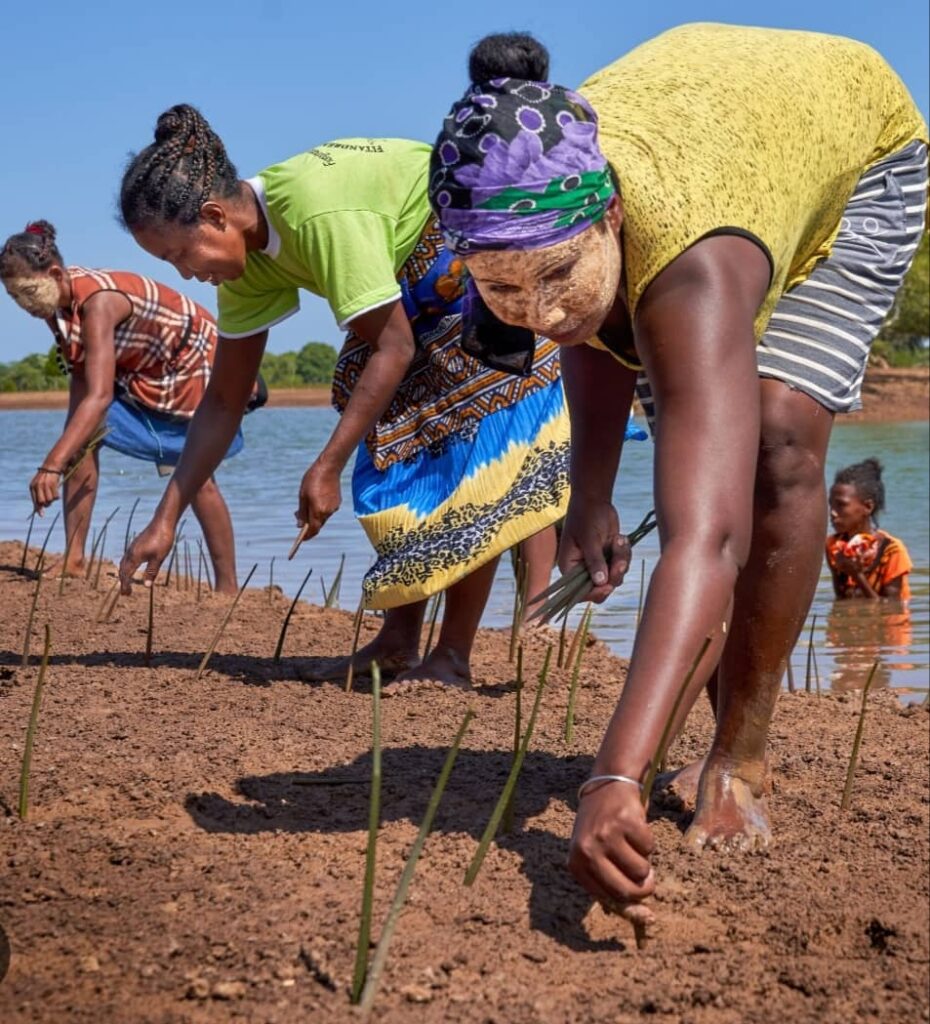Climate change is a problem we are living with but communities share this burden differently, with poorer communities often suffering the most. In Africa for example, many of the things people depend upon and value: water, energy, transportation, wildlife, agriculture, ecosystems and human health. They are at risk from the effects of the climate crisis. The people of Malawi are still reeling from the devastating impact of the Tropical Cyclone Freddie, which hit the country in March 2023. There is compounding evidence that shows how the recent climate related disasters have caused death and massive destruction on the African continent. A joint report from the UN and African Union in September 2023, says disasters such as the horn of Africa’s worst drought in 40 years and Algerian wildfires, resulted in 5000 deaths and over 8.5 billion in economic damages.These dire impacts of the climate crisis, as well as multifaceted consequences for children, women and other vulnerable populations on the continent; already struggling with access to vaccines and persistent poverty, should motivate African leaders to take ambitious action to combat the climate crisis. Especially, through mechanisms of climate adaptation to prevent further loss of life and livelihoods, particularly among these high risk communities.

COP28 demonstrated a considerable leap of progress in the Global goal on adaptation(GGA), by establishment of the framework for climate adaptation. This will allow international communities to take stock progress on adaptation strategies over time, accelerate action on the support for adaptation in terms of receiving the same level of funding or attention as other elements of the Paris agreement. The Framework will focus squarely on the collective well being of all people, the protection of livelihoods and economies, preservation and regeneration of nature; for current and future generations in the context of temperature goal. In addition, it will put emphasis on key sectors and prioritize them for increased climate resilience including: Food, agriculture, water, nature, health, ecosystems, livelihoods, cultural heritage, cities and infrastructure. This sends a clear message to practitioners(workers) in these sectors that urgent action is needed and they all have an individual role to contribute.
In 2024 the adaptation processes for adaptation and resilience are to be transformed into an adaptation policy cycle.The cycle will run at national level involving systematic steps that flow down from national assessments of national climate risks and vulnerabilities, then creation of national adaptation plans and their implementation. The aim is to witness stronger adaptation outcomes at national level. However, it will need a number of countries including our African countries to develop national adaptation plans, early warning systems as the main indicators in the adaptation policy cycle. This will need incorporation of different expertise including scientists, researchers, and workers in different sectors across nations. These will have a time-line of 2 years to be followed up, but our question is in the meantime what are those small projects that can be done in grassroute communities to help promote a better life like boosting agriculture, maintaining water and food security. The bitter fact is 2 years might find many of our people already scumming to some of the climate disasters, for example death from malnutrition due to famine from a prolonged drought, destruction of lives and livelihoods from a flood. As much as these policies are important for sustainable implementation and development, the current loophole is; what collateral solutions are in place as these policies are being developed? What should keep our vulnerable populations alive prior to these policies having an impact?
Overall, every climate solution needs climate financing and we are intrigued that this year’s climate conference COP29 will concentrate on climate finance. Adaptation financing commitments have been increasing, but they barely cater for the widening adaptation gap and no clear financial targets for adaptation finance have been set yet. Therefore, we urge developed countries to consider new financial goals in adaptation, which must be larger and more flexible in accessibility than the current financing of low income countries. For Africa, we must be trustworthy to these investments, holding our leaders accountable through transparency and involvement of civil society. Africa must attract and apply every possible climate solution from conservation of nature, promoting renewable energy adoption, sustainable land use practices, and resilient infrastructure development. These climate projects can in the end create jobs for a big young African population, benefit women and local people, leading to the transition to a more sustainable greener economies, which can begin on the African continent.
